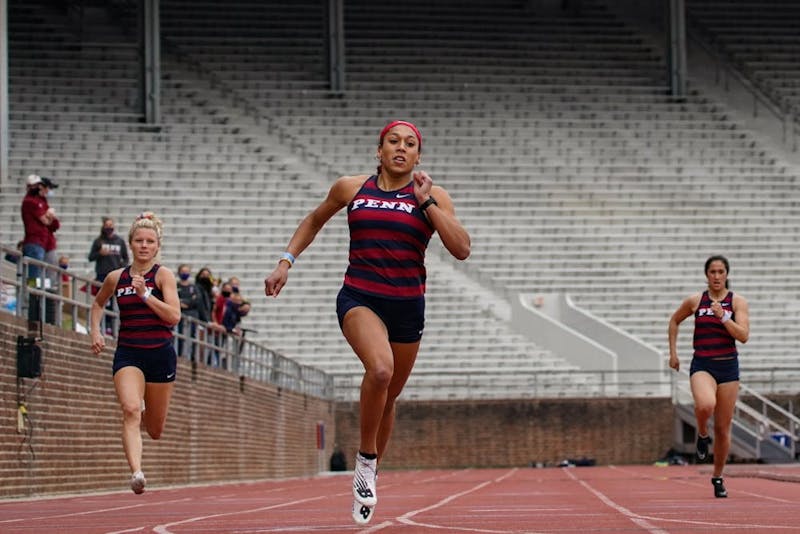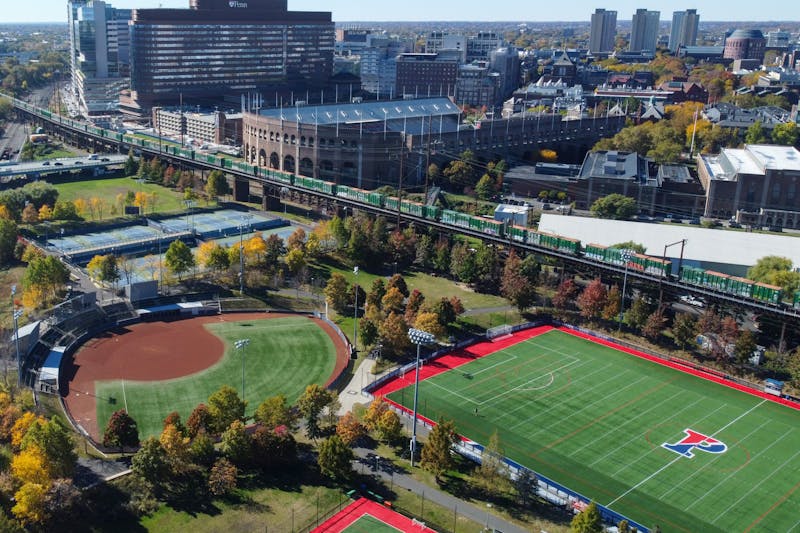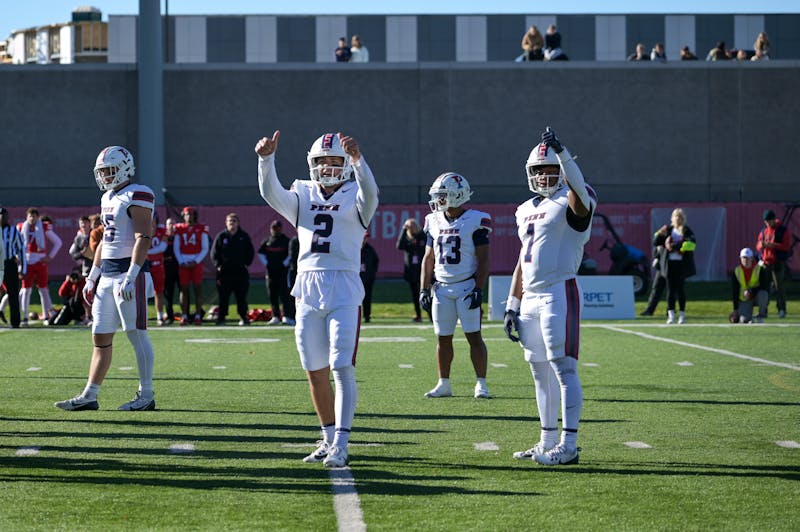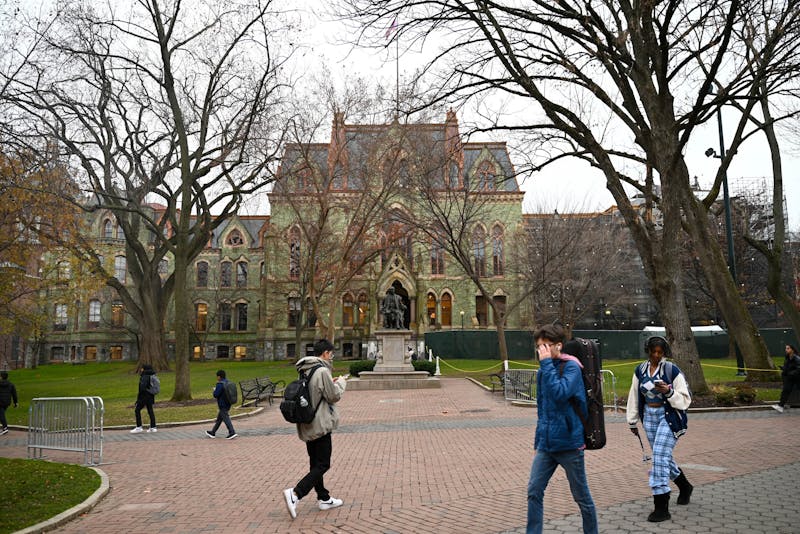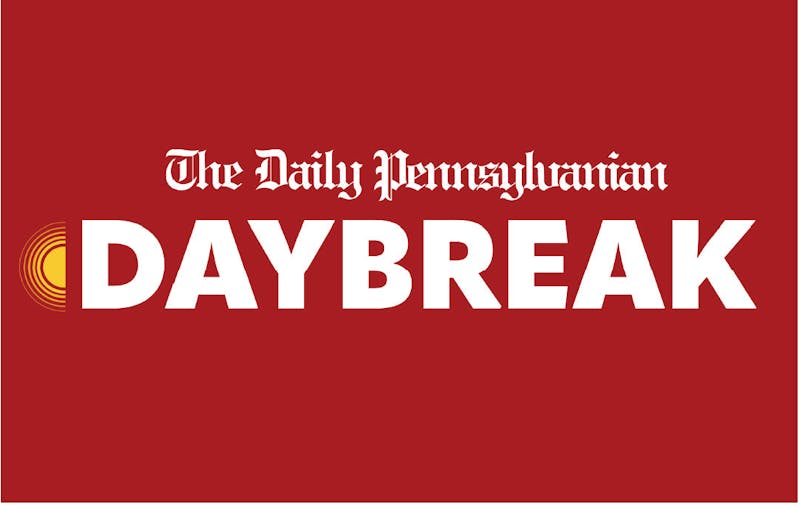
The men's basketball team huddles together before a game against Columbia on Feb. 4, 2022.
Credit: Jesse ZhangThe Ivy League will opt out of a pending NCAA settlement set to provide direct compensation to former and current college athletes, according to an email sent to Ivy League student-athletes on Jan. 21.
The email, sent by Ivy League Executive Director Robin Harris, states that the conference will not participate in the $2.8 billion settlement and that its athletic programs “will continue to not provide student-athletes with revenue sharing allocations, athletics scholarships, or direct [name, image, and likeness] payments.” The decision was made by the Ivy League Council of Presidents under recommendation from the Ivy League Athletics Directors and Policy Committee.
“It’s honestly a let-down for us Ivy League athletes,” star junior wide receiver for Penn football Jared Richardson wrote in a statement to The Daily Pennsylvanian regarding Penn’s decision to avoid paying players directly. “I understand that the main focus is on academics, but when you see all these other schools looking out for their athletes, it sort of gets you thinking like ‘oh, maybe the transfer portal would be best for me and my family.’ It also doesn’t help that we don’t receive athletic scholarships … hopefully, this ruling will get changed in the near future because I am honestly not a fan of it, nor are my teammates.”
This decision will not impact student-athletes’ ability to secure “legitimate NIL-related payments,” described as NIL deals earned without influence from their university, per the announcement. This comes days after the United States Department of Education declared that future NIL payments paid directly from universities should count as “athletic financial assistance” under Title IX — and thus should be distributed equally between men’s and women’s programs.
“Like our fellow Ivy League institutions, Penn will not be subject to NCAA roster limits, and will continue to support legitimate NIL opportunities for our student-athletes,” Penn Athletics wrote in a statement to the DP. “We remain committed to providing a first-class athletic experience, one that embraces our incredible history but continues to evolve and meet the holistic needs of our student-athlete community.”
On top of payouts to current and former athletes, the settlement, which will have a final hearing for approval on April 7, will establish a 10-year revenue-sharing model allowing NCAA conferences and their member schools to share 22% of their annual revenue with student-athletes. The Power Four NCAA conferences — the Atlantic Coast Conference, the Big Ten, the Big 12, and the Southeastern Conference — along with the Pac-12 conference, who are the defendants in the settlement, have agreed to this model.
Regarding whether the Ivy League’s decision to opt out would have impacted him if he was back in his first years in the program, star senior quarterback Aidan Sayin said in a written statement that he thinks “the degree still holds its value, but opportunities elsewhere will continue to take the top players in the league from each sport at an even higher rate than we saw over the past few years.”
According to the email to athletes, the Ivy League is set to maintain its longstanding rules — including prohibiting any form of compensation for participation in athletics — and will “continue to provide an educational intercollegiate athletics model that is focused on academic primacy and the overall student-athlete experience.”
The announcement details how the Ivy League’s membership in Division I and access to NCAA championships are not affected by this decision and states that Ivy League athletic rosters will still not be subject to roster limits imposed by the NCAA.
Despite not opting into the settlement deal, the Ivy League will still be subject to the “clearinghouse” terms of the settlement coordinated by the five defendant conferences. These terms will require all D-I student-athletes receiving NIL payments over $600 to disclose deals with a third-party “clearinghouse” with the ability to block NIL payments that they believe to be “pay for play” alternatives.
The Ivy League affirmed that current conference rules will remain in effect unless otherwise announced or modified.
“The Ivy League remains committed to its foundational principles and longstanding rules that intentionally foster student participation in intercollegiate athletics as an important aspect of a holistic education,” Harris wrote in a statement to the DP. “Ivy League institutions will continue to offer an experience that resonates with student-athletes, and we firmly believe the League will continue to thrive competitively as one of the top five athletics conferences across all of Division I.”
Olympian and former Penn track and field star Isabella Whittaker felt the news represented the reality of the conference’s programs: unsupportive to student-athletes.
“As a former student-athlete who has single-handedly helped to uplift the Penn program, I am extremely disappointed,” Whittaker, a 2024 College graduate, said in a written statement to the DP. “Ivy League schools are under the impression that they can take, use, and reuse their athletes and give them nothing in return.”
Under the terms of the settlement, each non-defendant conference or institution, including the Ivy League, may independently decide whether or not to opt into providing or facilitating the payments or benefits permitted under the terms of the settlement.
The settlement received preliminary judicial approval on Oct. 18, making any D-I players who participated in NCAA-sanctioned athletics since 2016 eligible to apply for payments. The settlement was in response to three separate antitrust lawsuits filed against the NCAA, in which plaintiffs argued that college student-athletes are entitled to profit off of their participation in their respective college athletics programs.
If approved, NCAA rule changes for non-Ivy institutions that opt in to the settlement will go into effect by the beginning of the 2025-26 academic year.
The Daily Pennsylvanian is an independent, student-run newspaper. Please consider making a donation to support the coverage that shapes the University. Your generosity ensures a future of strong journalism at Penn.
Donate







